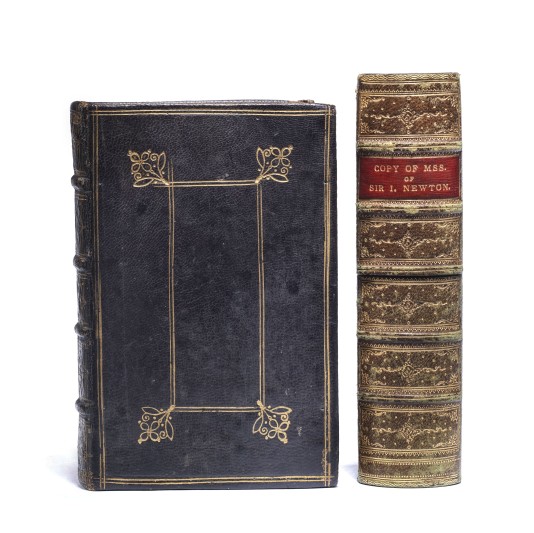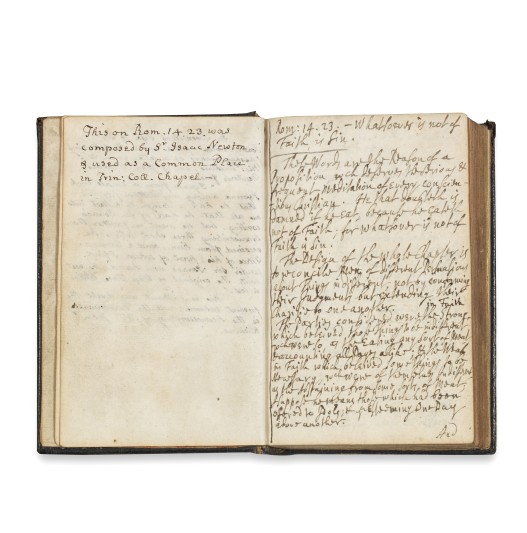Dr Jill Whitelock, Head of Special Collections, writes: Cambridge University Library is very grateful to the Friends of the National Libraries for generously supporting the acquisition of the manuscript notebook of John Wickins, friend, collaborator and amanuensis of Isaac Newton. The notebook contains transcripts of letters and other writings by Newton, including the longest example of Newton’s writing to be found in the past 50 years. Although the existence of the notebook was communicated to Robert Smith and thence to Newton’s heirs in 1728, and the three letters in the manuscript were published in 1880, they and the rest of the manuscript are unknown to Newton scholarship, the manuscript having subsequently been ‘lost’ to view.
The significance of the manuscript lies in its relationship to the Divinity Act, rigorously maintained by Joseph Beaumont (1616–99) during his tenure from 1674 of the Regius Professorship of Divinity. Beaumont’s own determinations at the Divinity Act survive in manuscript at the UL (MSS Add. 697-9) and at Peterhouse (MSS Beaumont). Dmitri Levitin and Scott Mandelbrote have recently edited Beaumont’s determinations at Newton’s Divinity Act (from Peterhouse, MS Beaumont 2). The text in the Wickins notebook is clearly that of Newton’s response to Beaumont’s topics and Beaumont’s specific points to the respondent engage with Newton’s words as given here. This is an unknown composition of Newton. It also represents the most significant surviving evidence of a respondent’s contribution to the Cambridge Divinity Act. Wickins also had to present at the Divinity Act (23 January 1679) and the letters between Newton and Wickins copied here make specific reference to the Act and suggest Newton’s coaching of the younger man from his own new-found expertise in Divinity. The book lists here are particularly interesting as providing concrete evidence of Newton’s earliest serious theological reading.
The notebook also provides important early information on Newton’s attitude to the copying of his materials. The University Library holds very rich resources for the study of the neglected topic of Newton’s collaboration with copyists and amanuenses. This is a particular strength of the Macclesfield Collection (especially through its documenting of the relationship of Newton with John Collins and with William Jones and his circle). It is also a hidden feature of the Portsmouth Collection (not least in the involvement of Wickins in copying Newton’s optical papers). Many of the copies represented in the University Library constitute the only known evidence for particular writings by Newton, just as in the case of the Wickins notebook.
Cambridge University Library holds the pre-eminent collection of scientific and mathematical papers of Sir Isaac Newton, which was recently inscribed on the UNESCO Memory of the World Register as documentary heritage of outstanding international importance. The notebook of John Wickins is a fine complement to this collection and adds significantly to our understanding of Newton and his writings, as well as casting new light on other manuscripts in the University Library.

